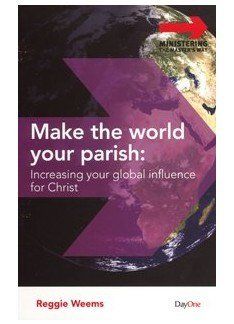Kieran Beville
EP Books
310, £10.99
ISBN: 978-0-85234-940-3
Star Rating: 2
Mission matters is a two-part collection of essays and reports previously published in magazines and journals over a number of years.
In Part 1, Beville covers a number of missiological topics, such as the nature of mission, the role of the local church in mission and issues focusing on the Western context.
Beville argues that mission should be defined broadly and holistically, while retaining a central place in evangelism. He ably discusses such contemporary movements as ‘aggressive atheism’ and ‘militant secularism’, suggesting ways that the church should respond to these.
On p.94, he argues — rightly, I think — that ‘postmodernism presents a new frontier situation’ (perhaps not so ‘new’ now) and expresses concern that some Christians have sold out to the spirit of the age.
Though I agree that this has indeed happened, I think Beville’s choice of the ‘missional church’ at which to direct his fire is problematic. Without referencing any writer or public figure, he describes the missional church as if it is one, neatly defined movement and then sets about challenging this straw man. Pastors and other leaders from a broad range of doctrinal and missiological positions advocate missional reforms to church life, so such a critique is too blunt an instrument for the job.
In reflecting on ‘false religions’ (p.130), Beville argues that they share ‘commonalities’ with the truth, which can be used as ‘a fertile place for the true gospel of Jesus to take root’. He wants to distance himself, though, from the idea that, ‘people throwing themselves on God’s mercy in response to natural revelation necessarily leads to salvation’ — which, nonetheless, suggests that this might be possible.
The author goes on to argue that ‘where [the Scriptures] are not available or where a person has not had access to Scripture, we may be sure that God knows how individuals would have responded if given the opportunity to do so’ (p.136). I wonder on what basis we may be so ‘sure’.
Part 2 is a collection of reports from trips the author has taken to various far-flung places, such as India, Romania and Serbia. I would have been happy to have read these in their first incarnation, but in this book they come across as dated and out of place — a photo of parking problems in Romania, for example!
Although he acknowledges that he is ‘very new to the Indian scene’ (p.310), the author makes unsubstantiated statements about the Dalits. Sadly, the factual errors presented demonstrate sociological and political naiveté. Is this inevitable when pastors travel overseas for short-term ministry? I hope not, but it is all too common.
Although the author has a number of good things to say, as a whole the book disappoints. It would have been better had the author used the stories in Part 2 to illustrate the points he was making in Part 1, rather than divide the book.
As it is, the book lacks cohesion. Presentational issues also drag it down: poor printing (several pages have lines running through photos and text); and, in places, poor punctuation.
Mark Pickett
Bridgend













